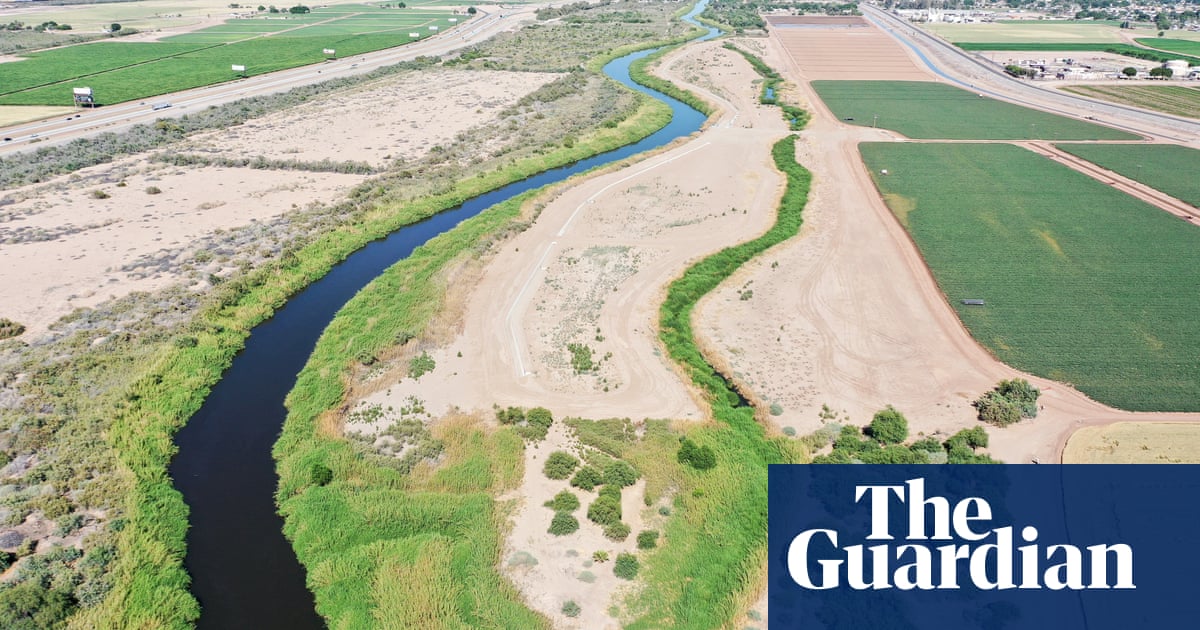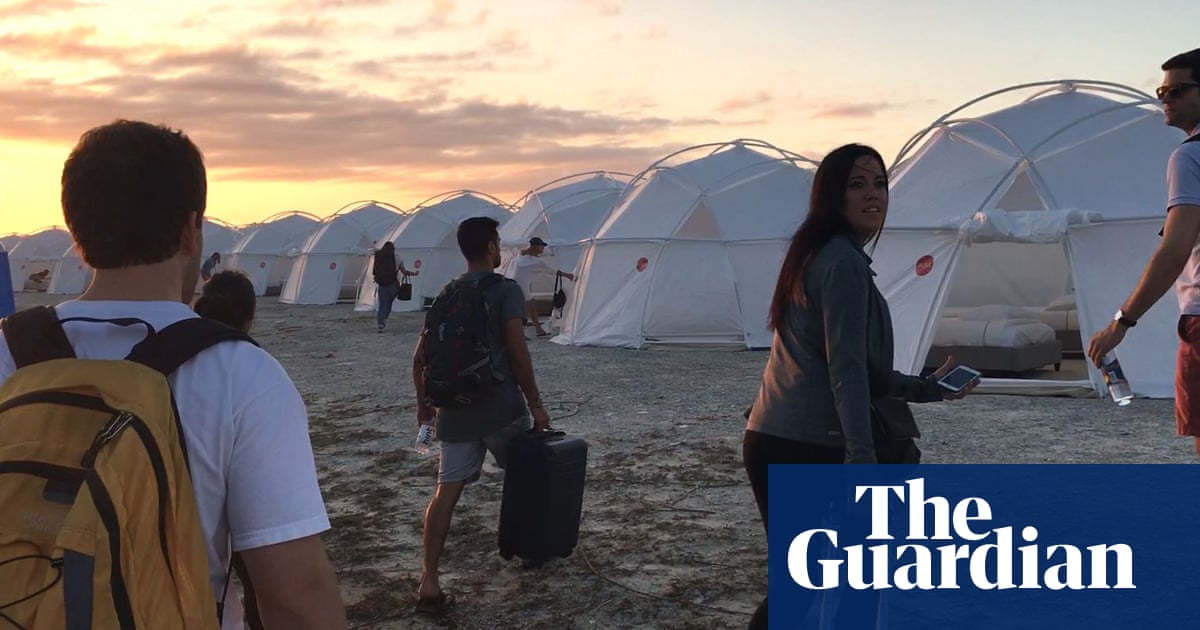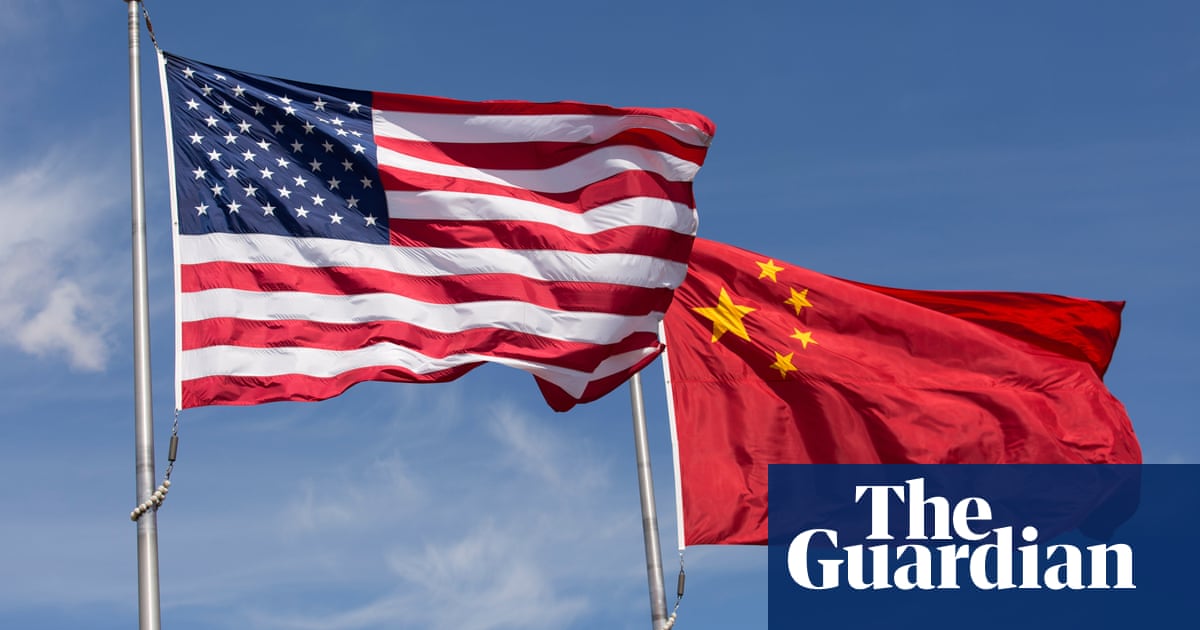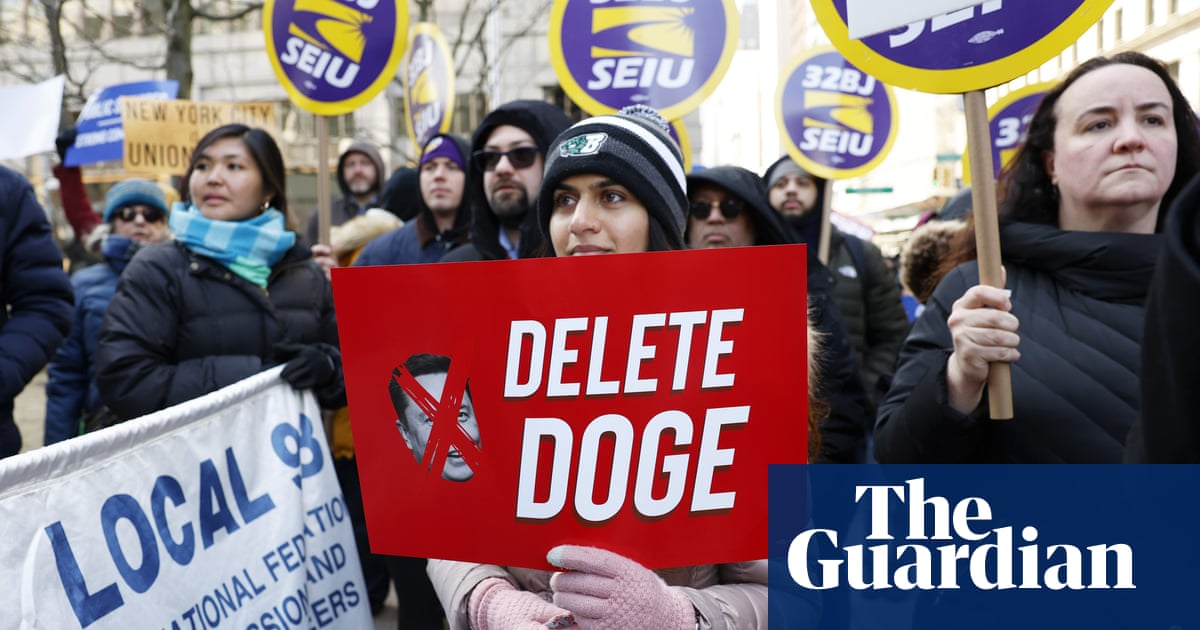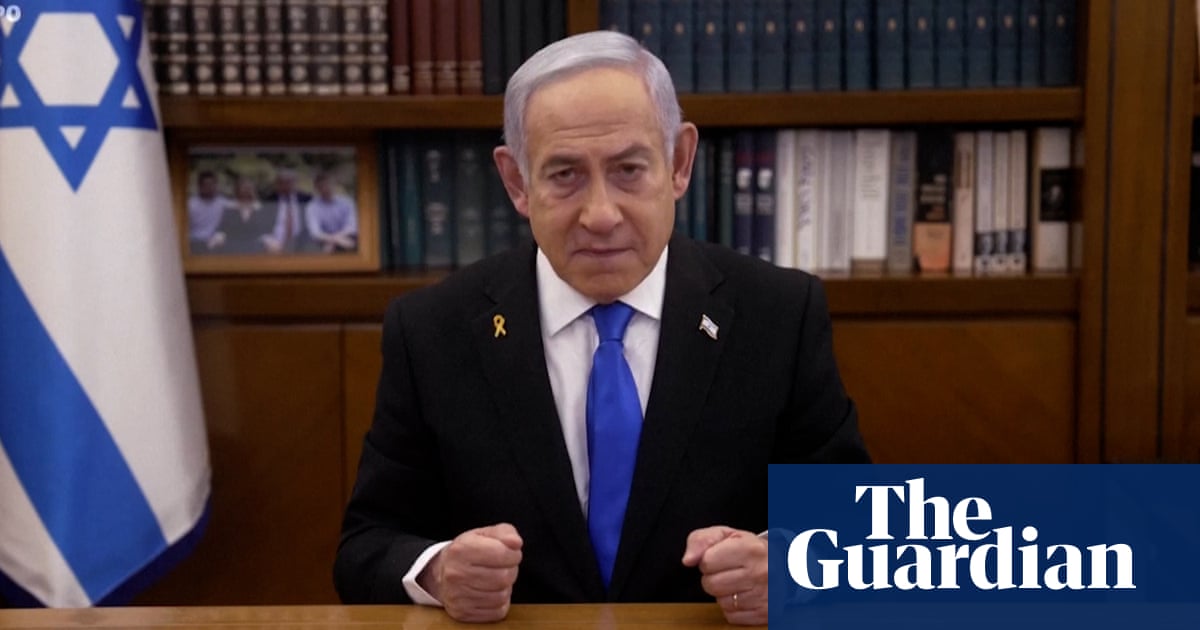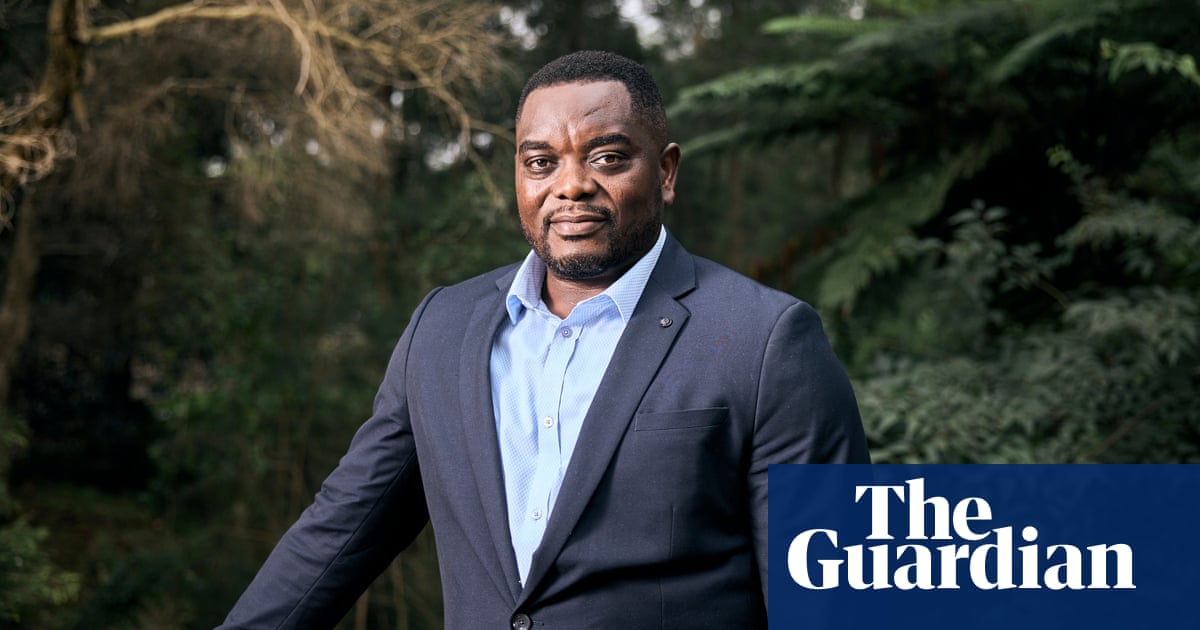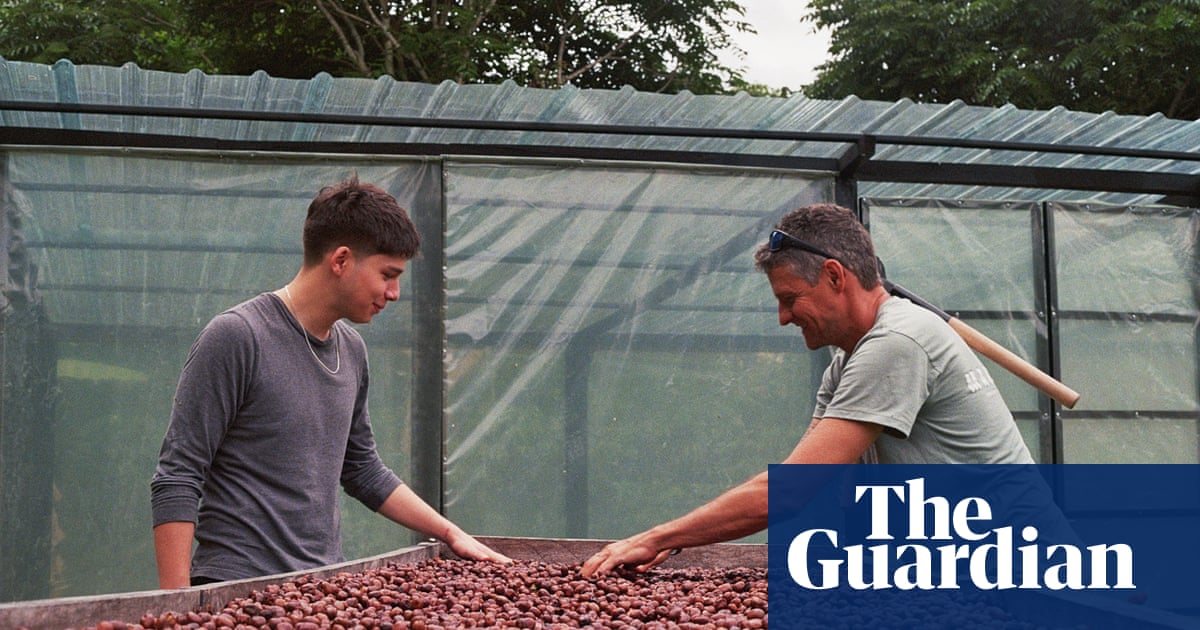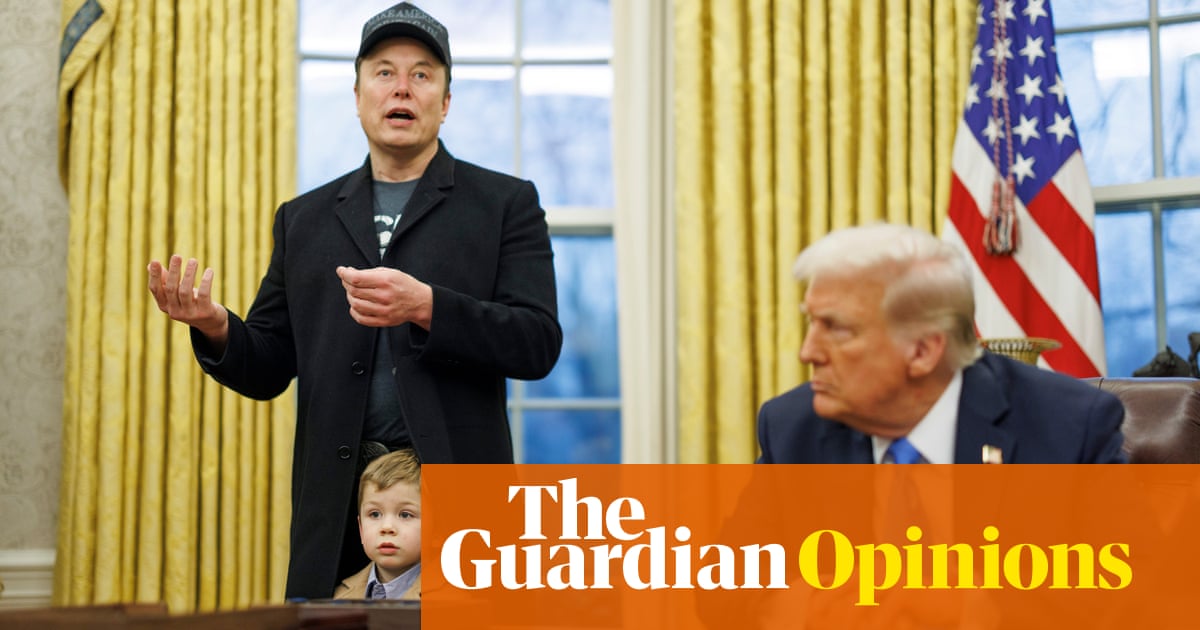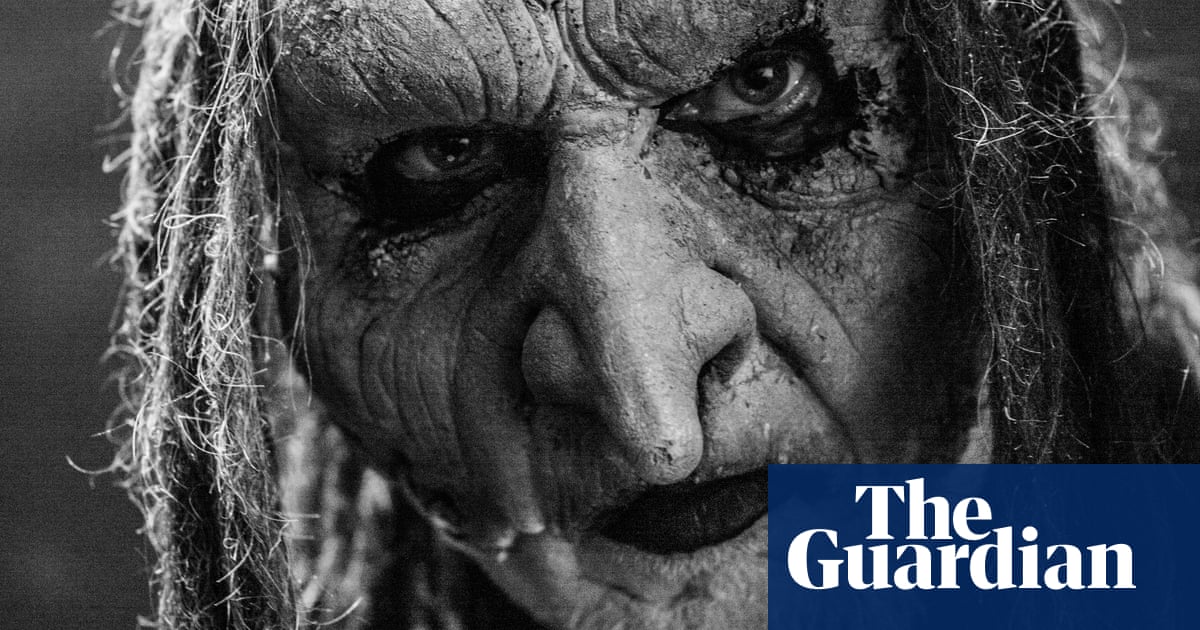More than 80 countries headed to the polls in 2024, including some of the wealthiest and most powerful, the most populous, the most authoritarian and the most fragile. Many votes tested the limits of democracy, while others were exercises in rubber-stamping. Some were boycotted by the opposition or undermined by government crackdowns on press and dissenters. We kept track of all the results with our election tracker:
January
BHUTAN
30 November 2023 – 9 January 2024: The tiny Himalayan kingdom elected the liberal former prime minister Tshering Tobgay and his People’s Democratic Party (PDP) with a large majority. Tobgay has vowed to promote the investment needed to boost the country’s $3bn economy and address the unemployment that is driving an increasing number of young Bhutanese abroad, mainly to Australia, in search of better opportunities.
BANGLADESH

7 January: Prime minister Sheikh Hasina won a fifth term in office in an election that was overshadowed by a ruthless crackdown on the opposition and voter turnout of just 40%. In the months leading up to the election, tens of thousands of opposition leaders and rank and file party members were arrested en masse with at least nine dying in jail in the three months preceding the election. In August, Hasina was forced to resign and flee the country after mass student-led protests that began over a quota system they said disproportionately allocated government jobs to the descendants of freedom fighters from the 1971 independence war.
TAIWAN
13 January: Taiwan elected Lai Ching-te as its next president, ushering in a historic third term in power for the pro-sovereignty Democratic Progressive party (DPP) and angering Beijing. Two days after the elections, China managed to reduce the number of Taiwan’s formal diplomatic allies to just 12, and has also begun increasing its military threats, with warplanes frequently entering Taiwanese airspace.
COMOROS

14 January: President Azali Assoumani won a fourth five-year term more than two decades after he first came to power in a coup. Though the country experienced three democratic transitions of power after he first stepped down in 2006, his return in elections in 2016 have since seen him erode democratic mechanisms. After January’s vote opposition candidates alleged fraud and ballot-stuffing.
TUVALU

26 January: Former attorney general and fisheries official Feleti Teo was elected as prime minister by MPs a month after general elections closely watched by Taiwan, China, the US and Australia amid a geopolitical tussle for influence in the Pacific. Tuvalu, with a population of about 11,200 spread across nine islands, is one of three remaining Pacific allies of Taiwan. Prior to the elections there had been calls for the new parliament to debate recognition of China and review a cooperation deal with Australia. But after his election Teo reaffirmed the country’s “long-term and lasting special relationship” with Taiwan.
FINLAND
28 January-11 February: Centre-right former prime minister Alexander Stubb won an election runoff against rival Pekka Haavisto in what was seen as the country’s most high-stakes presidential election in a generation. It was the country’s first poll since it joined Nato and took place amid escalating geopolitical drama on the border with Russia.
February
EL SALVADOR

4 February: President Nayib Bukele won a thumping victory after voters rewarded him for a fierce gang crackdown that has transformed security in what was once one of the world’s most dangerous countries. But his second term was unconstitutional and his New Ideas party’s sweep of parliamentary seats means Bukele will wield unprecedented power. Analysts also suggest that the suspension of civil liberties and imprisonment of more than 2% of the country’s adult population – many without charge – is unsustainable.
MALI
Were scheduled for 4 February: The junta said in September it would postpone presidential elections set for February – which was already a two-year delay on what was agreed by interim authorities after the 2020 coup led by Colonel Assimi Goïta. It appears the military plans to hang on to power indefinitely in the west African country, which has suffered an upsurge in terrorist violence since the military takeover.
AZERBAIJAN
7 February: President Ilham Aliyev won his fifth term with over 90% of votes in elections observers said were neither free nor fair. He had called the poll early after recapturing the breakaway region of Nagorno-Karabakh from Armenia last year and launching a crackdown on independent journalists.
HAITI
Were due by 7 February 2024: Elections were supposed to happen in 2023 with an earlier agreement in place for power to have been transferred by 7 February 2024. But since the assassination of president Jovenel Moïse in 2021, Haiti has descended into crisis and there are no longer any elected officials. In the latest bout of violence, gang leaders launched attacks on key institutions and infrastructure in Port-au-Prince while prime minister Ariel Henry was in Kenya in February, seeking support for a UN-backed force to stabilise the country. Gang leader Jimmy Chérizier, a former elite police officer known as “Barbecue” called for Henry’s ousting and said he would try to capture the country’s police chief and government ministers. While abroad, Henry pledged to hold parliamentary elections by mid 2025 but it was unclear if and when he would be able to return.
PAKISTAN

8 February: Despite opposition from the powerful military and a state-led crackdown, the PTI party of jailed former prime minister Imran Khan won the most votes in legislative elections. However after days of wrangling and political horse-trading a coalition including the rival Pakistan Muslim League-Nawaz (PLM-N) and the Pakistan People’s party (PPP) agreed to form the next government with Shehbaz Sharif as prime minister and ensure that that the PTI party could not take power.
INDONESIA
14 February: Prabowo Subianto, a 72-year-old former general who was dismissed from the military amid allegations he was involved in kidnapping and torture in the 1990s, is on course to win the presidency in the world’s third largest democracy with more than half of votes counted – as of early March there was still no final result. Prabowo has always denied wrongdoing but the results have provoked fear among rights activists that accountability for past atrocities will fade even further under his leadership, and that his future government will have little regard for human rights.
BELARUS

25 February: There were no surprises in parliamentary elections denounced by the US as a sham, the first since presidential polls won by longtime dictator Alexander Lukashenko sparked widespread protests in 2020. He has since cracked down even harder on opposition figures, including his main challenger, Sviatlana Tsikhanouskaya, who is now in exile. But the elections saw the All-Belarusian People’s Assembly become an official organ with immense powers, after a constitutional change made last year. According to one analyst, “It’s a step on the path to a Belarus without its contested leader Alexander Lukashenko, even if it’s impossible to say how long that path will be.” After the election, Lukashenko said that parliament’s role would continue to be expanded, but also announced that he would run for a seventh term in 2025.
CAMBODIA
25 February: The ruling Cambodian People’s party (CPP) claimed a landslide victory in Senate elections and set the stage for former prime minister Hun Sen to officially return to politics. Last year Hun Sen, who had ruled the country for almost four decades, handed power to his son, military general Hun Manet, just a month after parliamentary elections widely criticised as a sham. Party spokesperson Sok Eysan said Hun Sen had won a seat and confirmed the CPP would nominate the former leader as the president of the Senate – allowing him to act as head of state when the king is overseas – when it convenes in April. Human rights activists had warned ahead of the polls that the country, where opposition leaders have been jailed, was “continuing on its descent into authoritarianism”.
March
IRAN

1 March: Elections for parliament (Majlis) and the Assembly of Experts, the body which chooses the Supreme Leader, saw turnout of just 41%, the lowest since the 1979 Islamic revolution that swept the clerical rulers into power. The vote – the first since the massive protests sparked by the death of Kurdish woman Mahsa Amini in police custody in 2022 – was seen as a test of the clerical establishment’s legitimacy amid mounting economic struggles and a lack of electoral options for a mostly young population chafing at political and social restrictions. With heavyweight moderates and conservatives staying out and reformists calling the election not free and unfair, the contest was essentially among hardliners and low-key conservatives, all proclaiming loyalty to revolutionary ideals. Supreme Leader Ali Khamenei disqualified reformist former president Hassan Rouhani from running for the assembly.
PORTUGAL
10 March: Portugal’s centre-right Democratic Alliance ousted the Socialist government with the narrowest of victories in a snap election that saw a surge in support for the far-right Chega party. Under its leader, Luís Montenegro, the alliance made up of the Social Democratic party (PSD) and two smaller conservative parties formed a minority government and was sworn in early April, but its stability is still a concern as it needs the support of either the Chega party or the centre-left PS to pass legislation.
RUSSIA

15-17 March: Vladimir Putin claimed a landslide victory and a fifth term in presidential elections that were widely condemned as neither free nor fair by the west. The government said Putin won 87.28% of the vote and that turnout was the highest in history at 74% of the electorate – results that used to appear only in Russia’s most despotic regions, such as Chechnya. There was no meaningful opposition; just a month before the election the country’s most prominent opposition leader, Alexei Navalny, died in mysterious circumstances in prison in Siberia. The elections were also seen as an attempt to gain a mandate for Putin’s war in Ukraine and voting took place in the four partially occupied regions of Ukraine – a message to locals that there is no alternative to Russian control.
SLOVAKIA
23 March: Nationalist-left government candidate Peter Pellegrini won Slovakia’s presidential election ahead of liberal, pro-western opposition candidate Ivan Korčok in a run-off poll. Pellegrini is a close ally of the pro-Moscow, populist prime minister Robert Fico. The vote was seen as a demonstration of how the country feels about Fico’s comeback last year after being forced to resign amid mass protests in 2018. Pellegrini’s victory cements Fico’s grip on power by giving him and his allies control of major strategic posts.
SENEGAL
24 March: Bassirou Diomaye Faye, a leftwing pan-Africanist, was sworn in as Senegal’s youngest president after a stunning election victory. He swept to a first-round win just 10 days after being released from prison. Faye’s election is being seen as a damning rejection of Macky Sall, the former president who was in power for 12 years. Faye is pledging radical reform with systemic change, greater sovereignty and calm after years of deadly turmoil, but faces major challenges in passing new laws as he lacks a majority in the national assembly.
UKRAINE

Was due by 31 March: Ukraine was due a presidential election by the spring – Volodymyr Zelenskyy’s five-year term is up. Under martial law, elections are suspended, but observers say a vote that acts as a safety valve to release internal tensions and popular discontents would be a worthwhile exercise – even if Putin tried to bomb it.
NORTH KOREA
Were expected by March: Elections to the hermit state’s rubber-stamp National Assembly were expected to be held in March. However the month passed with no indication a poll was about to take place. Observers have suggested the delay may be down to a constitutional amendment the Kim Jong-un regime wants to make regarding relations with Seoul. Elections usually feature a 99.99% turnout, with 100% backing the ruling Workers’ party.
April
KUWAIT
4 April: The official Kuna news agency said opposition candidates won 29 seats in the 50-member assembly, matching the outcome of last year’s parliamentary elections. Kuwait bans political parties and candidates run as independents. Two hundred candidates competed, the lowest number in over five decades. The elections took place after new emir, Sheikh Mishal al-Ahmad al-Sabah, who took over from his late brother in December, dissolved parliament in February after a lawmaker reportedly insulted the ruler, the latest in a series of dissolutions.
SOUTH KOREA
10 April: Liberal opposition parties scored a landslide victory in parliamentary elections, dealing a resounding blow to sitting President Yoon Suk-yeol and his conservative party but falling just short of a super majority. Support for the already unpopular Yoon had sunk further after a scandal over a Dior bag allegedly given to his wife. In the wake of the poll, senior ruling party politicians offered to resign to take responsibility for its heavy defeat, including the prime minister, Han Duk-soo. The Democratic party (DP) won 161 out of 254 directly contested seats, while the PPP won 90 seats. The Democratic party leader, Lee Jae-myung, said: “When voters chose me, it was your judgment against the Yoon Suk-yeol administration.”
CROATIA
17 April: The ruling HDZ party won parliamentary elections but with fewer seats than before and without a majority in what was seen as a popularity test for prime minister Andrej Plenkovic. The conservative HDZ has dominated politics since Croatia’s independence from a crumbling federal Yugoslavia in 1991 but has been scarred by multiple corruption scandals. Plenkovic secured a third term after agreeing a coalition with the far-right Homeland Movement (DP). The country is expected to hold a presidential election in December.
SOLOMON ISLANDS

17 April: Two weeks after a parliamentary election failed to deliver a majority to any party, lawmakers chose ex-diplomat Jeremiah Manele as their new prime minister. Manele, who was foreign minister when Solomon Islands turned its back on Taiwan and established diplomatic relations with Beijing in 2019, has pledged to continue his country’s embrace of China. While this stance may ring alarm bells in the US and Australia, which had voiced concern over a 2022 security pact that Solomon Islands signed with China, analysts say Manele is a less polarising figure than his predecessor, Manasseh Sogavare.
INDIA

19 April – 1 June: Narendra Modi’s ruling Bharatiya Janata party (BJP) lost its parliamentary majority, dealing an unexpected blow to the prime minister. Instead of the predicted landslide, voters pushed back against the strongman leader and his Hindu nationalist politics in swathes of the country. Nonetheless, together with the BJP’s political allies, known as the national democratic alliance (NDA), its win amounts to about 292 seats, which is enough to form a majority government to rule for the next five years and return Modi to office for a third term. The results were a surprisingly sweet outcome for India’s battered and bruised political opposition, particularly the BJP’s main rival, Indian National Congress, which had been written off by many pundits and analysts prior to the polls as too weak and disorganised.
MALDIVES
21 April: Voters backed President Mohamed Muizzu’s tilt towards China and away from traditional benefactor India, with his party winning control of parliament in an election landslide. Muizzu’s People’s National Congress (PNC) won 66 of the first 86 seats declared, according to the Elections Commission of Maldives, already more than enough for a super-majority in the 93-member parliament. The vote was seen as a crucial test for Muizzu’s plan to press ahead with closer economic cooperation with China, including building thousands of apartments on controversially reclaimed land.
TOGO
29 April: Incumbent president Faure Gnassingbe’s ruling Union for the Republic party (UNIR) won 108 of 113 seats in parliamentary elections, allowing him to extend his rule under a constitutional reform that has been denounced by the opposition. Under new rules approved by lawmakers in April, Gnassingbe will instead be able to take a new post as “president of the council of ministers”, a role similar to prime minister that is automatically assumed by the leader of the majority party under the new parliamentary system. The overall president – the head of state – will have a mostly ceremonial role and be elected by parliament. As president of the council of ministers, Gnassingbe, in power since 2005 after the death of his father, will be able to stay in power without term limits.
May
PANAMA

5 May: Former security minister José Raúl Mulino won presidential elections after standing in at short notice for former president Ricardo Martinelli, who was barred after being handed an 11-year sentence for money laundering in 2023. Martinelli played a key role in drumming up support for Mulino while holed up in the Nicaraguan embassy, where he has sought asylum. The pro-business, rightwing president will have to grapple with a slowed economy, historic levels of migration, a drought that is handicapping transit in the Panama Canal and the economic aftermath of mass anti-mining protests in 2023.
CHAD
6 May: Chad’s constitutional council confirmed junta chief Mahamat Idriss Déby as winner of the presidential election after dismissing challenges by two losing candidates – cementing a victory that extended his family’s decades-long rule. Déby, who seized power the day rebels killed his father, President Idriss Déby, in 2021 and declared himself interim leader, won 61% of the vote, well ahead of second-placed candidate Succes Masra with 18.54%, the council said. The election was marred by opposition calls for a boycott and the shooting dead of one expected candidate in February.
THE DOMINICAN REPUBLIC
19 May: The hugely popular incumbent, Luis Abinader, won almost 60% in the first round of a presidential election, voiding the need for a runoff. The 56-year-old centrist has benefited from a strong post-Covid recovery, his crusade against corruption and a hardline stance on migrants from neighbouring Haiti, with which he closed his country’s border last year. However crime, cited in travel warnings by the US state department, ranks in polls as a major issue for citizens of the Dominican Republic. While the economy has soared, Abinader’s critics say he has work to do in taming inflation and inequality that have left behind many citizens.
LITHUANIA
12-26 May: Independent incumbent Gitanas Nausėda won more than 70% of votes in a run-off presidential election against prime minister, Ingrida Šimonytė. The campaign was dominated by the war in Ukraine and fears over a potential attack on Lithuanian territory by neighbouring Russia; both candidates supported increasing defence spending to at least 3% of GDP. Lithuania will also hold parliamentary elections this year.
MADAGASCAR

29 May: Legislative elections took place months after President Andry Rajoelina was re-elected in a vote marred by low turnout, an opposition boycott and accusations of fraud. Despite its wealth of resources, 75% of the population of the island nation off the south-east of Africa lives below the poverty line. Rajoelina’s government has been accused of sliding towards dictatorship – it banned public protests last year and has cracked down on opposition. Results are expected to be announced between 8 and 18 June.
SOUTH AFRICA

29 May: The African National Congress (ANC) party lost its majority for the first time in 30 years of full democracy, as voters punished the party of Nelson Mandela after years of corruption, leadership scandals, power cuts and high rates of crime and unemployment. However, it still emerged as the largest party, with 40% of the vote, and has now launched coalition talks. It has various options, including linking up with the new MK party of former president Jacob Zuma, although the MK party’s leaders have said they will not work with the ANC while President Cyril Ramaphosa remains its leader. Other possibilities include a coalition with the pro-business Democratic Alliance (DA) or the Economic Freedom Fighters (EFF), a Marxist-Leninist party led by the ousted ANC youth leader Julius Malema.
June
ICELAND
1 June: Halla Tómasdóttir won the presidential election with 34% of votes, beating former prime minister Katrin Jakobsdóttir into second place. The role is largely ceremonial, acting as a guarantor of the constitution and national unity, although Icelandic presidents have in the past refused to sign unpopular legislation. Tómasdóttir, a 55-year-old entrepreneur and former head of the country’s chamber of commerce who also ran unsuccessfully for the post eight years ago, will be sworn in on 1 August, taking over from former history professor Guðni Thorlacius Jóhannesson.
MEXICO

2 June: Claudia Sheinbaum won a landslide victory to become Mexico’s first female president, and its first Jewish president. The leftwing climate scientist and former mayor of Mexico City was boosted by the popularity of her mentor and outgoing leader, Andrés Manuel López Obrador, whose social programmes she vowed to continue. But the poll was also the most violent in modern history, with more than 30 candidates killed and hundreds more dropping out as criminal groups vied to install friendly leaders; one of Sheinbaum’s biggest tasks will be trying the stem the surge in gang-related violence in recent years. The new president will also face tense negotiations with the White House over the huge flows of US-bound migrants crossing Mexico.
EUROPEAN PARLIAMENT

6-9 June: Parties on the populist right made stunning gains in European parliamentary elections across the 27-nation bloc; despite that, the pro-European centre appeared to have held. In France, Emmanuel Macron called snap legislative elections after the crushing defeat of his allies by Marine Le Pen’s far-right National Rally, while in Germany, Chancellor Olaf Scholz’s coalition had a bad night as the far-right Alternative für Deutschland (AfD) made significant gains. The far-right also won large shares of the vote in Italy, Austria, Hungary and the Netherlands. But the centre-right European People’s party (EPP), which topped the polls in Spain and Poland, won the largest number of seats, and its lead candidate, Ursula von der Leyen,later secured a second term as European Commission president. Nevertheless, the narrowing overall majorities for mainstream pro-European parties could mean the blocking or slowing of laws on Europe’s green deal and the taking of a harder line on other areas of EU sovereignty including migration, enlargement and support for Ukraine.
BELGIUM
9 June: Prime minister Alexander De Croo resigned after his Flemish Liberals and Democrats party (Open VLD) suffered heavy defeats in parliamentary elections. A new government is likely to coalesce around the rightwing New Flemish Alliance (N-VA), which beat its arch-rival, the far-right Vlaams Belang, into second place in the key Dutch-speaking Flanders region. But the French-speaking liberal party, Mouvement Reformateur, was the biggest in Brussels and French-speaking Wallonia, setting the country on course for months of challenging coalition talks. Belgium is infamous for its lengthy coalition negotiations: after the last elections in 2019 it took more than 650 days before a government was formed.
BULGARIA
9 June: The party of conservative former premier Boyko Borisov won the most votes in snap parliamentary elections – the sixth in three years – with almost 25%. But it is likely to continue to struggle to find partners to govern after massive anti-corruption protests in 2020 ended Borisov’s almost decade-long rule, indicating that political instability in the EU’s poorest country is unlikely to end. Reformist grouping PP-DB slumped to between 14 and 15% – down from the almost 25 percent they got in the last snap polls last year. The election was marked by apathy, with turnout the lowest for a national election since the end of communism, at around 30%.
MAURITANIA

22 June: President Mohamed Ould Ghazouani, whose party won a comfortable victory in parliamentary elections last year, won a second term with over 56% of the vote. His election in 2019 represented the first peaceful transfer of power in the West African country’s history and he has overseen its relative stability in the increasingly violent Sahel region. However his main rival, anti-slavery activist Biram Dah Abeid, who won 22.14%, rejected the initial results, alleging irregularities. Prior to the election, the third place candidate, Hamadi Sidi El Mokhtar, had also said he would not accept the results if he suspected rigging.
MONGOLIA
28 June: The ruling Mongolian People’s party (MPP) emerged from elections with its parliamentary majority significantly diminished, after a campaign dominated by concern over endemic corruption and the high cost of living. In the new State Great Khural, the country’s unicameral parliament, the MMP will hold 54% of the seats, compared to about 80% in 2020, a result analysts said was a rebuke of the party and its leadership. The elections were the first to take place since major changes were made to the system last year, increasing the number of seats in the chamber from 76 to 126 and reducing the number of electoral districts from 29 to 13.
July
UNITED KINGDOM
4 July: Labour leader Keir Starmer was swept to power in a landslide victory that marked an end to 14 years of Conservative rule, the last half of which was dominated by the economic and political fallout from Brexit and a rotating carousel of Tory prime ministers. However, Starmer’s win was more down to the deep unpopularity of the Conservatives than to enthusiasm for him and his party; thanks to the UK’s first-past-the-post system Labour won more than 60% of parliamentary seats on just 33.8% of the vote, just 1.7% percentage points more than it won in 2019. The Tories won 23.7% of votes – down a massive 19.9 percentage points, with many of their voters switching to smaller parties including the populist Reform party. Starmer now faces a groaning in-tray, with the country facing crises in multiple areas including migration, environment, prisons, the health service and housing.
IRAN

28 June-5 July: The reformist Masoud Pezeshkian pulled off a stunning victory in the presidential runoff, reflecting deep dissatisfaction with the direction of the country in recent years and opening potential new avenues of cooperation with the west. Pezeshkian defeated the ultra-conservative Saeed Jalili on a turnout of 49.8% – a big increase on the record low turnout of 39% recorded in the first round. Pezeshkian has been an advocate of letting women choose whether to wear the hijab and ending internet restrictions that require the population to use VPN connections to avoid government censorship. But the former heart surgeon faces a minefield in trying to bring about change; Iran’s supreme leader, Ayatollah Ali Khamenei, wields ultimate authority and under his rule the government has increasingly cracked down on dissent.
FRANCE

30 June-7 July: A leftwing alliance won the most parliamentary seats in a surprise result that kept Marine Le Pen’s far-right National Rally – opinion polls had predicted it would win the most seats for the first time in French history – from taking power, but also meant no party gained an absolute majority. The country, which has no history of coalition governments and which in modern times has always had a dominant party in parliament, now faces a period of uncertainty. The results were a rebuke to President Emmanuel Macron, who called the snap elections after his centrist alliance was trounced by the far right in European Parliament elections in May; he now faces the three remaining years of his term with an even more fragmented parliament, weakening his own position domestically and abroad.
RWANDA
15 July: There were no surprises in an election that saw President Paul Kagame, who has ruled with an increasingly iron fist since coming to power after the genocide in 1994, win 99.1% of the vote. The 66-year-old has been credited with bringing unity, stability and development to the small, landlocked country. But critics have accused his administration of suppressing dissent and trampling on human rights. At least five opposition politicians and four government critics and journalists have died or disappeared in suspicious circumstances since the 2017 election, according to Human Rights Watch. Rwandan officials have denied any wrongdoing.
VENEZUELA

28 July: Venezuelan authorities launched a fresh crackdown after tens of thousands of people took to the streets following the announcement that President Nicolás Maduro had won re-election with 51% of the vote. Western countries including the US said the official results were not credible and recognised opposition candidate Edmundo González – who replaced the popular María Corina Machado on the ballot after she was banned from running – as the winner. Maduro, who took power in 2013 after the death of his mentor, Hugo Chávez, has presided over a spectacular economic collapse; despite owning the world’s largest oil reserves Venezuela’s economy shrank by 80% in the eight years to 2022.
BURKINA FASO

Were scheduled for July: Elections scheduled for this year have been postponed for five years by the junta that seized power from the democratically-elected government two years ago. Since then security in the country has rapidly worsened as the government cracks down on Islamist militants, with both sides accused of the mass killings of civilians. Observers suggest junta leader Capt. Ibrahim Traoré’s refusal to stick to a 24-month transition timetable set out by Ecowas in July 2022 suggests he intends to cling on to power.
SYRIA
15 July: President Bashar Assad’s ruling Ba’ath party won a majority of seats in the 250-seat parliament on a turnout of 38%, further cementing his grip on power. The elections, the fourth since anti-government protests descended into a bloody civil war 13 years ago and which were criticised by the west as neither free nor fair, were expected to pave the way for a further extension of Assad’s term.
August
KIRIBATI
14-19 August: In October, Taneti Maamau was re-elected as president of Kiribati for a third term. Maamau had retained his seat by a landslide in August parliamentary elections that were dominated by concerns about the cost of living, rising sea levels and relations with China. The votes took place against the backdrop of a long-running judicial and constitutional crisis, with limited legal services available and no court of appeal.
September
ALGERIA
7 September: President Abdulmadjid Tebboune won 95% of the vote in an election marred by allegations of fraud – and unexpectedly challenged by the president himself. The military-backed incumbent faced only two candidates: Hassani Cherif, a moderate Islamist, and Youcef Aouchiche, a moderate secularist, both of whom lodged an appeal with the constitutional court after the results were announced. In a surprise move, Tebboune’s campaign issued a joint statement with his opponents rebuking the country’s election authority for “inaccuracies, contradictions, ambiguities and inconsistencies”, legitimising questions about his win and aligning him with popular anger that his challengers had drummed up.
JORDAN
10 September: Boosted by anger over Israel’s war in Gaza, Jordan’s moderate Islamist opposition made significant gains in parliamentary elections, winning around a fifth of seats. The Islamist Action Front (IAF) also benefited from a new electoral law that encourages a bigger role for political parties in parliament, though tribal and pro-government factions will continue to dominate the assembly. Turnout was low at just 32%, indicating the country’s apathy towards them. The country’s parliamentary system is structured so that urban areas – Islamist and Palestinian strongholds – have far fewer MPs per voter than the countryside, whereas sparsely populated tribal and provincial cities which form a bedrock of support for the kingdom’s Hashemite monarchy send the majority of deputies to parliament.
SRI LANKA

21 September: Marxist leader Anura Kumara Dissanayake won presidential elections, in what was viewed as a widespread rejection of the old political elite who are blamed for the country’s severe economic woes. He defeated the incumbent and six-time former PM, Ranil Wickremesinghe, who took office in 2022 at the peak of the financial crisis that followed the government’s first-ever foreign debt default and months of punishing food, fuel and medicine shortages. It will be the first time Dissanayake’s hardcore leftist Janatha Vimukthi Peramuna (JVP) party – which led two rebellions in the 1970s and 80s that left more than 80,000 people dead – has sat in the presidential office.
AUSTRIA
29 September: The anti-Islam, Kremlin-friendly Freedom party (FPÖ) scored its strongest result since its founding after the second world war by former Nazi functionaries and SS officers, winning just over 29% of the vote. The outcome surpassed expectations and beat the ruling centre-right People’s party (ÖVP) by nearly three percentage points. Other parties however ruled out working with the party to form a coalition government, meaning weeks after the election the shape of the next government was still to be decided.
October
TUNISIA

6 October: Tunisia’s president, Kais Saied, secured a second five-year term with a landslide victory, though in an election with a historically low turnout of 11% and after a campaign in which other candidates were jailed or banned from running for office. Observers saw the poll as a closing chapter in Tunisia’s short-lived experiment with democracy. The country had previously prided itself on being the birthplace of the Arab spring uprisings.
LITHUANIA
13 October, second round on 27 October: Lithuania’s opposition Social Democratic Party (SD) won two rounds of parliamentary elections, initial results showed, putting it on course to lead a centre-left coalition in the Baltic country and replace the current coalition of centre-right parties led by prime minister Ingrida Šimonytė. If successful in forming a government SD leader Vilija Blinkevičiūtė is expected to maintain the country’s hawkish stance against Russia and its massive defence spending.
MOZAMBIQUE
9 October: Daniel Chapo and the ruling Front for the Liberation of Mozambique, or Frelimo, was on course to win presidential and parliamentary elections according to early results, even as his challenger, the independent Venâncio Mondlane, said the polls had been marred by fraud. The authoritarian Frelimo has ruled the country since independence in 1975. Mondlane’s lawyer and a senior opposition party official were shot dead by unknown gunmen in the capital, Maputo, in the days after initial results were announced and protests led by Mondlane were violently dispersed by police. Full results are not expected until 24 October.
MOLDOVA

20 October, second round on 3 November: Pro-western incumbent president Maia Sandu won a second term in office, marking a significant boost for the country’s EU aspirations and a clear rebuke to Moscow. Sandu has made EU membership a cornerstone of her programme, but her position had been weakened after a referendum asking Moldovans whether they supported EU integration was passed by only the tiniest of margins on 20 October, the same day as the first round of presidential elections, despite opinions polls having indicated widespread support. Sandu, who accused Moscow of plotting a coup against her in 2023, blamed an “unprecedented assault on our country’s freedom and democracy” by “foreign forces” for the narrow result.
GEORGIA

26 October: Georgian Dream, led by prime minister Irakli Kobakhidze, retained power in a pivotal election that was immediately disputed by the opposition. Georgia’s pro-EU president, Salome Zourabichvili, declared that she did not recognise the election results and asserted that the country had fallen victim to a “Russian special operation”. On paper, the ruling party wants to move closer to the west and is pursuing EU and Nato membership, with support from its overwhelmingly pro-western population. In reality however, Georgians fear that Russia is already taking over their country by stealth aided by their own government. Press freedom has been eroded in recent years and civil society activists say Georgian Dream is answerable just to one man, its billionaire founder, Bidzina Ivanishvili.
JAPAN
27 October: Japan’s ruling coalition lost its parliamentary majority amid anger over a party funding scandal and a cost of living crisis. As a result, the Liberal Democratic party (LDP), which has ruled the country almost uninterrupted since the 1950s, or the main opposition Constitutional Democratic party (CDP) may be forced into power-sharing agreements with other parties to form a government. The result also raises questions about the future of the recently installed prime minister and LDP leader, Shigeru Ishiba, who called the election only days after taking office on 1 October, aiming to bolster his position and that of his scandal-hit party.
URUGUAY
27 October first round, with a runoff on 24 November: Centre-left opposition candidate Yamandu Orsi was well ahead of his conservative rival, Alvaro Delgado after a first round of voting, but failed to reach 50%, meaning a runoff will take place. Observers, noting the civility of the race between the two moderates, have said the elections should reinforce the view that Uruguay is one of the strongest democracies in the world. President Luis Lacalle Pou, who is barred from running again by the constitution, leaves office with an unusually high approval rating of 50% and the country has avoided the trends of bitter division and democratic erosion taking hold in other Latin American countries.
UZBEKISTAN
27 October: The Central Asian nation held its first legislative polls since President Shavkat Mirziyoyev – who won a third term last year in what monitors said was a poll “lacking genuine competition” – signed into law a mixed majority and proportional electoral system. However there is little opposition in a country where the media are tightly controlled and the government cracks down on any form of dissent. All candidates running in the election were nominated by the country’s five registered parties, none of which oppose Mirziyoyev.
BOTSWANA
30 October: The opposition coalition Umbrella for Democratic Change (UDC) won a parliamentary majority in a historic election that saw the ruling Botswana Democratic party (BDP) booted from office for the first time since independence from Britain in 1966. The UDC leader, lawyer Duma Boko, was sworn in as president and promised to diversify the economy away from its dependence on the international diamond market. The southern African country is regarded as one of Africa’s most stable democracies and outgoing president Mokgweetsi Masisi conceded defeat, saying: “We got it wrong big time.”
November
UNITED STATES

5 November: Donald Trump was elected the 47th president of the United States in a stunning political resurrection that sent shockwaves through America and around the world. The Republican, who defeated Democratic nominee Kamala Harris, is the first convicted criminal to win the White House as well as the oldest person ever elected to the office. The victory followed a campaign that saw Trump narrowly survive an assassination attempt and Harris replace President Joe Biden on the Democratic ticket just months before the election amid concerns about his age and health. Trump’s win sparked fear and foreboding among his opponents: among other things he has opposed aid to Ukraine and praised authoritarian strongmen, taken a strongly pro-Israel stance in his first term at the expense of the Palestinians and others in the region, promised to begin a programme of mass deportation of immigrants, called the climate crisis a “hoax”, backed gun rights advocates, called the media the “enemy” and in his first term appointed the supreme court judges who ultimately overturned abortion rights.
PALAU
5 November: Palau’s president Surangel Whipps Jr was returned for a second term, defeating his brother-in-law Tommy Remengesau. Ahead of the election, voters said they were mostly concerned about the economy and a cost of living crisis. But outside Palau, the election symbolised a growing geopolitical tussle for influence between Washington and Beijing that is playing out across the Pacific. Palau is important to the US military amid tensions with China and is among a dozen diplomatic allies of Taiwan.
SOMALILAND
13 November: In elections that had been postponed for two years, opposition leader Abdirahman Cirro defeated the incumbent, President Muse Bihi Abdi. Somaliland has had de facto self-rule since declaring independence from Somalia in 1991 but has not been recognised by any country, and it hopes this could change under the administration of US president-elect Donald Trump. Cirro’s victory could also signal closer ties with China, a major investor in the Horn of Africa.
ROMANIA
Presidential elections first round on 24 November, second round was scheduled for 8 December; parliamentary elections on 1 December: Romania shot into international headlines when its top court annulled the results of the first round of presidential elections after declassified intelligence alleged Russia ran a coordinated online campaign to promote the far-right outsider who won it. The previously unknown Călin Georgescu had been due to face off against pro-European reformist Elena Lasconi in a run-off. The contest will now be rerun early next year. Far-right parties, meanwhile, performed well in parliamentary elections, though the ruling Social Democrats emerged as the largest grouping and hope to form a pro-EU coalition government.
NAMIBIA

27 November: Namibia elected its first female president, Netumbo Nandi-Ndaitwah, in a result that extended the ruling Swapo party’s 34-year hold on power. Swapo has won every previous presidential election since independence from South Africa in 1990 but its share of the vote has been declining. Nandi-Ndaitwah is widely viewed as a steady hand, a seasoned diplomat not tainted by the corruption scandals that had engulfed some other members of her party. Her triumph also means that Namibia bucks a trend of incumbent liberation movements being punished by restive younger voters in southern Africa.
SOUTH SUDAN

Were due in late 2024: President Salva Kiir – in power since before Africa’s youngest nation voted for independence in 2011 – has repeatedly postponed general elections and in September announced they would be delayed once again, until 2026, citing a lack of preparedness. The fledgling nation where a five-year civil war that broke out in 2013 cost an estimated 400,000 lives and where three-quarters of the population depends on aid, has also been further strained by the civil war in neighbouring Sudan. International guarantors of the country’s peace process criticised Kiir’s decision, saying it showed the government’s failure to implement a 2018 peace agreement.
IRELAND
29 November: Prime minister Simon Harris’ centre-right Fine Gael and coalition partner Fianna Fáil came top of parliamentary polls and began talks to re-enter their alliance and form a fourth successive government, although their third coalition partner, the Green party, was all but wiped out. Although the country is suffering a chronic housing crisis and has yet to emerge from a cost-of-living crisis triggered by Russia’s invasion of Ukraine, the slide in euro-region interest rates and a November budget of tax cuts and spending increases laid the ground for an election benefiting the parties in power. They have also profited from the collapse in support for the leftwing Irish republican party Sinn Féin over its flip-flopping policy on migration and a string of scandals over child safeguarding.
MAURITIUS

30 November: The opposition Alliance du Changement (ADC) coalition, led by veteran politician Navin Ramgoolam, won a landslide 60 of the 62 national assembly seats, routing the ruling Militant Socialist Movement (MSM), which had led the government since 2009. Despite steering the Indian Ocean archipelago – regarded as one of Africa’s most stable democracies – to 7.0% economic growth last year, outgoing prime minister Pravind Jugnauth’s popularity appeared to have been badly dented by a cost-of-living crisis and corruption allegations.
ICELAND
30 November: The centre-left Social Democratic Alliance became the biggest party after a snap election that unseated the ruling coalition of the past seven years, making party leader Kristrun Frostadottir among the favourites to become prime minister. The current prime minister and leader of the conservative Independence party, Bjarni Benediktsson, could also continue at the helm; each party was on about 20% of the vote and so three parties will be needed to form a coalition. Benediktsson had called for snap elections after the collapse of the governing coalition in October. The government has been under pressure this year as volcanic eruptions forced thousands to leave their homes, while the economy is facing high inflation and soaring interest rates.
December
GHANA

7 December: Former president John Dramani Mahama won a historic comeback election victory after voters appeared to punish the ruling New Patriotic party (NPP) over its management of an economic crisis. The NPP’s candidate, the vice-president, Mahamudu Bawumia, conceded defeat in the presidential election after failing to shake off widespread frustration over the high cost of living. The west African country is undergoing its worst economic crisis in a generation.
GUINEA-BISSAU

Were expected in December: No firm date was set for this year’s presidential election and no further update has been given on when they will take place. Legislative elections announced for November have also been postponed indefinitely. The country has a history of coups and the political atmosphere is tense; President Umaro Sissoco Embalo dissolved parliament in December 2023, accusing the government of “passivity” in the face of an attempted coup.
GUINEA
Were expected in December: After a junta seized power from the country’s first democratically elected president in 2021, it had been hoped this year’s planned legislative and presidential elections would be a step back on the road to democracy. But in October, authorities under junta leader Col Mamady Doumbouya dissolved dozens of political parties and placed two major opposition parties under observation, an unprecedented move in the country which had only held its first democratic election in 2010. No new date has been set for elections. .
Reuters, Associated Press and Agence France-Presse contributed to this report

 2 months ago
37
2 months ago
37


